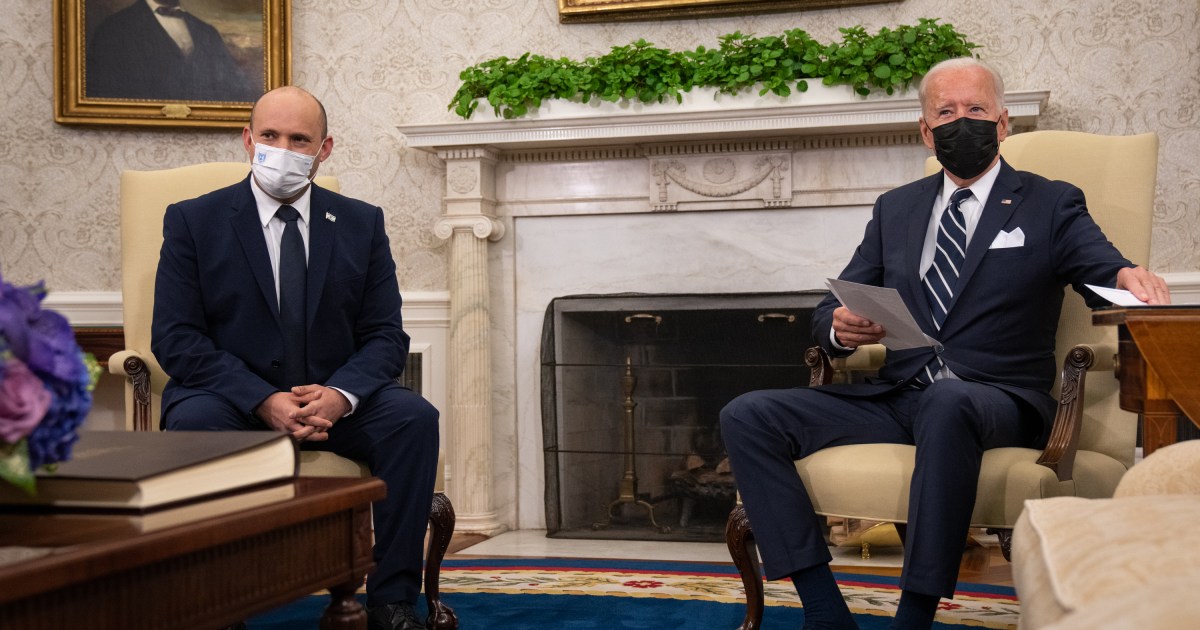US President Joe Biden, during talks at the White House with Israeli Prime Minister Naftali Bennett, hinted at other non-diplomatic options regarding the Iran nuclear file, and reiterated the two-state solution to settle the Palestinian issue.
In statements during his meeting with Bennett on Friday, Biden said that the option of diplomacy is not the only option that his administration has to deal with Iran's nuclear program.
Biden added that his administration will resort to other options if diplomacy fails, while White House spokeswoman Jen Psaki said that pursuing the diplomatic path with Iran remains Washington's preferred option.
The White House said in a statement that Biden and Bennett reviewed, during their meeting, steps aimed at deterring and containing what he described as Iran's dangerous behavior in the region.
For his part, the Israeli Prime Minister expressed his satisfaction with what the US President said regarding the Iranian file, and pointed out that Biden had clearly said that Iran would not be able to obtain nuclear weapons.
Bennett also said that his country must be the strongest in the region to be able to confront those who want to eliminate it, as he put it.
The two-state solution
During talks with the Israeli Prime Minister, the US President reiterated that a two-state solution is the only way to a lasting solution to the Israeli-Palestinian conflict.
The White House statement said Biden noted the importance of refraining from actions that could increase tension with the Palestinians.
The US President also stressed the importance of steps aimed at improving the standard of living of the Palestinians and providing them with greater economic opportunities, according to the US presidency statement.
Before arriving in Washington for the first such visit since taking office, Israeli Prime Minister Naftali Bennett said in an interview with the New York Times that he would work to expand settlements in the West Bank.
He also hinted that Israel would continue its covert attacks on the Iranian nuclear program.
Accelerate the negotiations
Meanwhile, the European Union stressed the need for a speedy resumption of the Vienna talks aimed at reviving the nuclear agreement between Iran and the major powers, and to work in a coordinated manner with the International Atomic Energy Agency regarding Tehran's nuclear activities.
During a phone call with Iranian Foreign Minister Hossein Amir Abdollahian on Friday, European Union Foreign Policy Commissioner Josep Borrell expressed his hope that he would set a date for the Vienna negotiations after the formation of the government in Iran.
For his part, Abdullahian said that his country accepts negotiations that have practical results and guarantee the rights of the Iranian people, stressing that the parliament's law on the Iranian nuclear program is binding on the government.
The Iranian minister was referring to the law on "lifting sanctions and ensuring national interests", which supports measures that violate the terms of the nuclear agreement, including 20% enrichment of uranium, and the suspension of inspections carried out by the International Atomic Energy Agency, and this law was criticized by former Iranian President Hassan Rouhani, who He said he obstructed the lifting of sanctions on his country.

